Israeli fighter jets conducted heaviest airstrikes in southern Lebanon

Israeli fighter jets conducted heaviest airstrikes in southern Lebanon late Thursday night, signaling a major intensification in the conflict with Hezbollah.
These air raids occurred as global powers, including the White House, urged for calm and a diplomatic resolution. White House Press Secretary Karine Jean-Pierre emphasized the need to prevent a further escalation, while the UK called for an immediate ceasefire.
The Israeli strikes followed earlier incidents, which Lebanon and Hezbollah attributed to Israeli forces, targeting Hezbollah’s communication networks. These attacks reportedly resulted in 37 deaths and approximately 3,000 injuries in Lebanon.
By Thursday night, Israel’s military announced that its aircraft had bombed numerous rocket launch sites in southern Lebanon, which were prepared to launch strikes against Israel. The bombardment consisted of over 52 airstrikes in just two hours, beginning around 9 PM local time, according to Lebanon’s state news agency, NNA.
Security sources in Lebanon described the strikes as the most intense since the conflict flared up in October, though no immediate casualties were reported.
Israel vowed to continue its military campaign against Hezbollah, revealing that it had targeted approximately 100 rocket launchers and other key sites on Thursday alone during the heaviest airstrikes. In a televised address, Hezbollah’s leader, Hassan Nasrallah, condemned the earlier bombings of its equipment, accusing Israel of violating international law. Nasrallah also suggested that these actions could be classified as war crimes or acts of war.
Though Israel did not formally comment on the equipment explosions, that impacted communication devices like radios and pagers, Lebanese officials believe that the Israeli intelligence agency, Mossad, was responsible. The mission of Lebanon to the UN has accused Israel of planting explosives in these devices electronically, a theory that has gained traction since the attacks. The UN Security Council is set to convene on Friday to discuss the situation, with Lebanese Prime Minister Najib Mikati calling for strong action against Israel’s “aggression” and “technological warfare.”
As Nasrallah spoke, Israeli jets flew over Beirut, causing sonic booms—an increasingly common occurrence that now holds greater significance as tensions rise.
Late Thursday, Israeli Defense Minister Yoav Gallant affirmed that military operations against Hezbollah would continue, acknowledging the growing risks while suggesting that Israel’s actions were placing increased pressure on Hezbollah through such heaviest airstrikes. He warned that the group would face escalating consequences, with Israel aiming to secure the safe return of northern Israeli residents to their homes.
Israeli Prime Minister Benjamin Netanyahu held a meeting with senior ministers to address the situation, with local media reporting that two Israeli soldiers were killed during combat in northern Israel on Thursday.
The hostilities between Israel and Hezbollah erupted after the group fired missiles into Israel, following a Hamas-led cross-border attack on October 7, which ignited the Gaza war. Despite the intense exchanges of fire, both sides have so far avoided full-scale war. However, the ongoing violence has led to the displacement of hundreds of thousands of residents along the border areas.
In his speech, Nasrallah declared that Hezbollah would embrace an Israeli ground invasion of southern Lebanon, calling it a “historic opportunity.” He argued that no escalation or military action would enable Israeli civilians to safely return to the border regions. His position was echoed by Iran’s Revolutionary Guards Commander, Hossein Salami, who warned that Israel would face a “devastating response” from the Iran-aligned coalition of militant groups, including Hezbollah, Hamas, Yemen’s Houthis, and armed factions in Iraq and Syria.
Meanwhile, U.S. Secretary of State Antony Blinken, speaking from Paris, urged restraint and warned against actions that could further complicate efforts toward a ceasefire in Gaza.
The destruction of Hezbollah’s communications systems has caused widespread concern in Lebanon, with many citizens avoiding the use of electronic devices due to fears that they might contain hidden explosives. Nasrallah claimed that thousands of pagers had exploded simultaneously, some going off in civilian spaces such as hospitals, pharmacies, and markets.
Israel maintains that its conflict with Hezbollah, much like the ongoing Gaza war against Hamas, is part of a broader regional struggle with Iran, which supports both militant groups, as well as other armed movements in Syria, Yemen, and Iraq. Israel has also been accused of high-profile assassinations, including a Hamas leader in Tehran and a senior Hezbollah commander in Beirut in July.
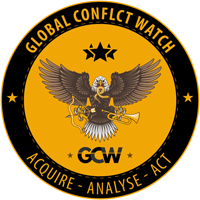
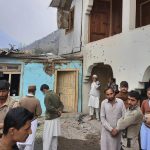
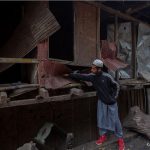
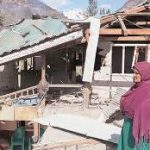
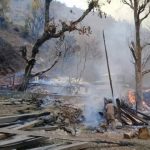
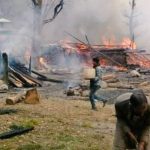
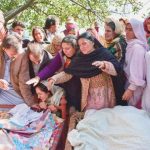
Comments